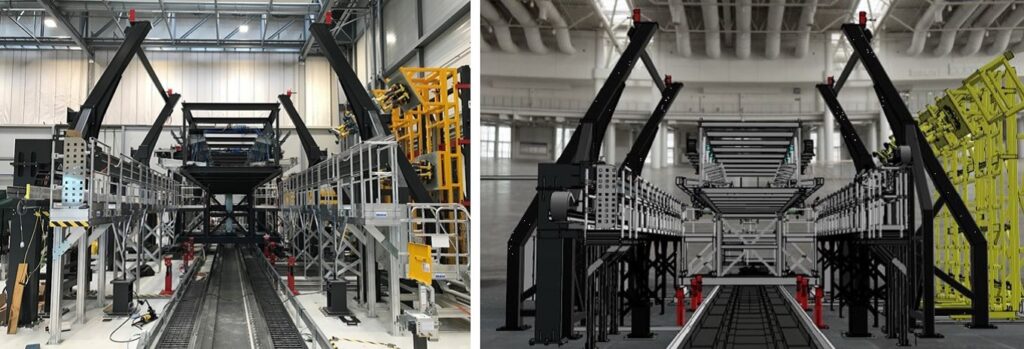Strong and lightweight, thermoplastic composites present major advantages when it comes to driving down fuel costs and emissions in the aerospace industry. Manufacturers already use thermoplastics to make small aircraft components. Now, they’re turning their attention to using this material for something as large as the fuselage. However, creating and assembling thermoplastic parts on such a large scale presents an entirely new challenge. Joining two composite shells together to form the fuselage requires very large, specialized robotic tools with advanced software control.
The Multifunctional Automation System for Fuselage Assembly Line (MultiFAL) project – part of the European Union’s Clean Sky 2 initiative – set out to develop the automated plant system to make it happen and built and tested the plant in the virtual world first to speed up the entire process.

Automation and virtual commissioning technology lie at the heart of the MultiFAL project, which aims to accelerate plant commissioning time and define the detailed production steps required for a successful assembly of thermoplastic fuselage. Spanish engineering company The CT Engineering Group (CT) was tasked with coordinating the project, as well as designing and final testing of the fuselage demonstrator.
“The project’s goal is to apply virtual commissioning to an automated plant system,” said Jose Maria Rodriguez Valenzuela, R&D project manager at CT. “It will enable the industry to improve productivity, flexibility, cost efficiency, parallel planning, and new capabilities to manufacture in different lot sizes. By simulating a multitude of setups during the plant’s design phase, we can optimize the final production plant.”
To ensure the project ran as smoothly as possible, CT implemented the 3DEXPERIENCE platform on the cloud, which it used for all design, simulation, project management, product data management and collaboration related to the automated plant system. Using the cloud-based environment to store and share information, all stakeholders were able to collaborate seamlessly at every development stage.
Fast forward to today, and CT has successfully built a full-size automated plant system and demonstrated that it’s possible to reduce the commissioning time of automated plant systems by up to 20% through virtual commissioning. For CT, this is just the beginning of how it plans to use the 3DEXPERIENCE platform to support future research and development activities. Read the full story here to discover how CT successfully harnessed the 3DEXPERIENCE platform to make MultiFAL a reality and kept the ambitious project on track.
Read the full story here.

